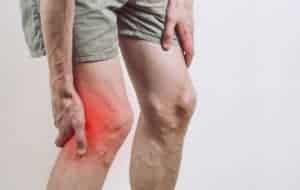
This type of trauma can also occur to a person with an aging knee after enduring a lower level of trauma. Our Atlanta orthopedic doctors are sharing answers to the most commonly asked questions about meniscal tears and ways to treat this injury.
What Is The Meniscus?
There are two “C” shaped rings of cartilage that sit between the femur bone and tibia in each knee called menisci. This cartilage acts as a cushion for the bones or a shock absorber that protects from wear and tear when engaging in running, standing, and walking.
Symptoms
When a meniscal tear occurs, pain is present in the knee. For those less severe tears, the tear appears along the inside of the knee, where a more severe tear occurs on the outside of the knee. Twisting and bending of the knee increase the likelihood of pain if a tear is present. Other symptoms related to a tear could be a locking, popping, or clicking noise coming from the knee. A bucket handle tear is a condition that requires immediate attention as the meniscus flips into the middle of the knee and causes the knee to lock up.
Diagnosis
To diagnose this type of injury, our orthopedic specialists will order an MRI if they are suspicious of a tear following a physical exam. To receive the most accurate diagnosis and effective treatment plan, seeking medical care from a skilled musculoskeletal doctor will give you the best chance for a successful recovery.
How Is A Tear Treated?
At AICA Orthopedics, we develop an individualized treatment plan for each patient as each injury is different. For those with mild sporadic pain, we may suggest rest as well as anti-inflammatories, steroid injections, or physical therapy. This may prove effective for some; other patients may need to limit activities and consult about surgery.
Meniscal repair surgery occurs arthroscopically by entering the knee through small holes and placing sutures where they are needed or removing damaged parts of the knee. With this technique, post-operative pain decreases as well as minimal scarring.
I think I may have a meniscal tear, what’s my next step?
When it comes to your health, AICA Orthopedics takes a collaborative approach and believes in keeping you informed and in charge of the decisions made about your health. We share with you our concerns and the multiple ways your injury can be managed and then together develop a plan that best suits your needs. Each patient is different and requires a different course of action for the most effective results and healing. If you suspect you have a meniscal tear, contact our office today at (404) 855-2141 to schedule an appointment!
